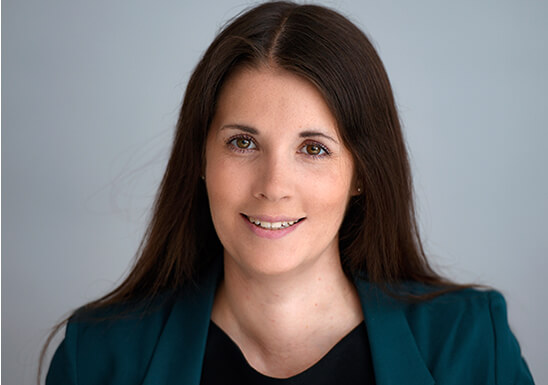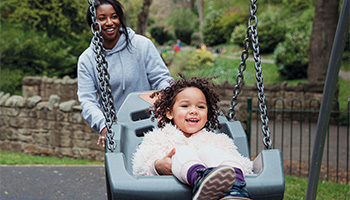Nearly two million face debt over self assessment tax bills this month
- Soaring tax bills mean people are turning to overdrafts to meet HMRC’s demands as January 31 deadline looms.
- More than a third say they are shocked by the size of the bills they face with “payments on account” adding to the pain.
- Survey reveals lack of public awareness over self-assessment obligations, including the high-income child benefit charge (HICBC), leading to fines.
Around 1.8 million taxpayers will turn to overdrafts this month to pay unexpected self-assessment tax bill amounts, according to research from Royal London.
Income tax receipts are expected to soar by around £35 billion by 2028/29 thanks to the phenomenon of fiscal drag, where rising incomes and frozen tax thresholds tip greater numbers of workers into higher bands. New research shows many find themselves landed with tax bills they can’t afford or hadn’t budgeted for.
In a survey of 4,000 UK adults, only half of those who are employed had set aside savings to pay their tax bill, compared to 7 in 10 (69%) of self-employed respondents.
Worryingly, 1 in 5 (18%) of those who are employed said they expected to use overdrafts, while 1 in 10 (9%) of those who are self-employed said they would do so.
Around 12 million people are expected to fill in a self-assessment return for 2022-23. Those required to make a return under current rules include anyone with untaxed income including those who are self-employed, those who own rental properties, anyone who earns more than £100,000, partners in business partnerships and anyone liable for the high-income child benefit charge (HICBC).
Surprisingly, Royal London’s research revealed a lack of understanding concerning taxpayers’ self-assessment obligations, with 1 in 4 (27%) self-employed respondents saying they would not be filing a return.
The survey also revealed how many are caught unaware by the size of their tax bills. More than a third (37%) of respondents said their bills in the past had been greater than expected. Men were more likely to be surprised by their tax bill than women (41% v 32%), while younger taxpayers were more likely to caught unaware than older demographics, with 56% of 18-34-year-olds reporting that some or all of their previous tax bills had been greater than expected compared with just 21% of 50-69-year-olds.
Older generations were better too at budgeting throughout the year to pay their self-assessment bills. Nearly half (47%) of over-70s said they regularly set money aside to meet HMRC’s demands compared with 41% of 18-34-year-olds.
Careful financial planning was more evident too among higher earners with 73% of £150,000-£200,000 earners saying they built a financial buffer specifically for tax purposes compared to 43% among £20,000-£30,000 earners.
Moreover, just 1 in 10 (10%) of all those surveyed were aware that those who are liable to pay the high-income child benefit charge are obliged to complete a self-assessment return. Under the current system, if you or your partner claim child benefit and each earns less than £50,000 a year, you will get the full amount. But if either of you earns more, then the higher earner will have to pay a tax charge on the child benefit you receive (unless you opt not to receive it). If one partner earns more than £60,000, the tax charge is equivalent to 100% of the child benefit. Recent wage growth has meant more and more parents are exposed to the charge, although many are unaware of this. According to data released by HMRC, 6,652 parents were issued with Failure to Notify penalties in relation to a child benefit tax charge in 2022-23. Penalties are usually 10-30% of the tax due.
Royal London’s findings come as self-assessment taxpayers are reminded that they face “payments on account” for the year ahead - as well as settling their taxes for the year just gone.
Self-assessment taxpayers must make the two annual payments on account - 31 January and 31 July – unless their last tax bill was less than £1,000 or they paid more than 80% of the previous year’s tax owed. Each payment is half your previous tax year’s bill.
HMRC imposes a penalty of 5% of the tax you owe if you’re more than 30 days late with your payment, with further penalties if you haven’t paid six months after the deadline. On top of that, you’ll be charged annual interest at 2.5 percentage points above the Bank of England base rate, meaning taxpayers now face a 7.75 per cent interest charge on any late payments.
Sarah Pennells, consumer finance specialist at Royal London commented:
“It’s worrying that almost two million people are resorting to their overdraft to pay their tax bill this year, especially when overdrafts can be an expensive way of borrowing.
“People are also getting caught out by higher tax bills than they expect. If you’re going to struggle to pay this year’s tax, you may be able to set up a payment plan with HM Revenue and Customs, but one of the conditions is that you must be within 60 days of the payment deadline, so you must act quickly.
“It’s equally concerning that there’s so much confusion about the self-assessment system almost 30 years after it was introduced, particularly about who needs to fill in a self-assessment tax return. If you’ve had income that you’ve not been taxed on, the chances are you’ll need to fill in a self-assessment tax return – unless it’s something like dividend income from investments held within an ISA – which is tax free.
“It’s a good idea to build some financial resilience by setting aside some money in a savings account. Look at the total tax you owed this year, from your July and January instalments, and put away a twelfth of that every month in a savings account to prepare for 2025. If you know you’re earning more this year, you may need to increase your monthly savings. Best buy easy access savings accounts are paying 5% interest – so if you start saving now – you may even have a bit of extra interest this time next year.”
Notes to editor
*Self assessment criteria are changing | ICAEW
** Royal London commissioned a survey by Opinium between 5th December – 11th December 2023 with a Nat Rep sample of 4,000 UK adults.
All figures, unless otherwise stated, are from this survey. The survey was carried out online. The figures have been weighted and are representative of all GB adults (aged 18+).
Simplifications are due to High Income Child Benefit:
Administrative Changes to the High Income Child Benefit Charge: The government wants to simplify the process for customers who become liable to the High Income Child Benefit Charge, particularly for those who currently need to register for Self Assessment to pay the charge. The government will provide details in due course on how it will enable employed customers to pay through their tax code, without the need to register for Self Assessment.
For further information please contact:
Nicki Parry, PR Manager
- Email: nicki.parry@royallondon.com
- Mob: 07919 170 043
About Royal London
Royal London is the largest mutual life, pensions and investment company in the UK, and in the top 30 mutuals globally, with assets under management of £162 billion, 8.6 million policies in force and over 4,200 employees. Figures quoted are as at 31 December 2023. Learn more at royallondon.com.






